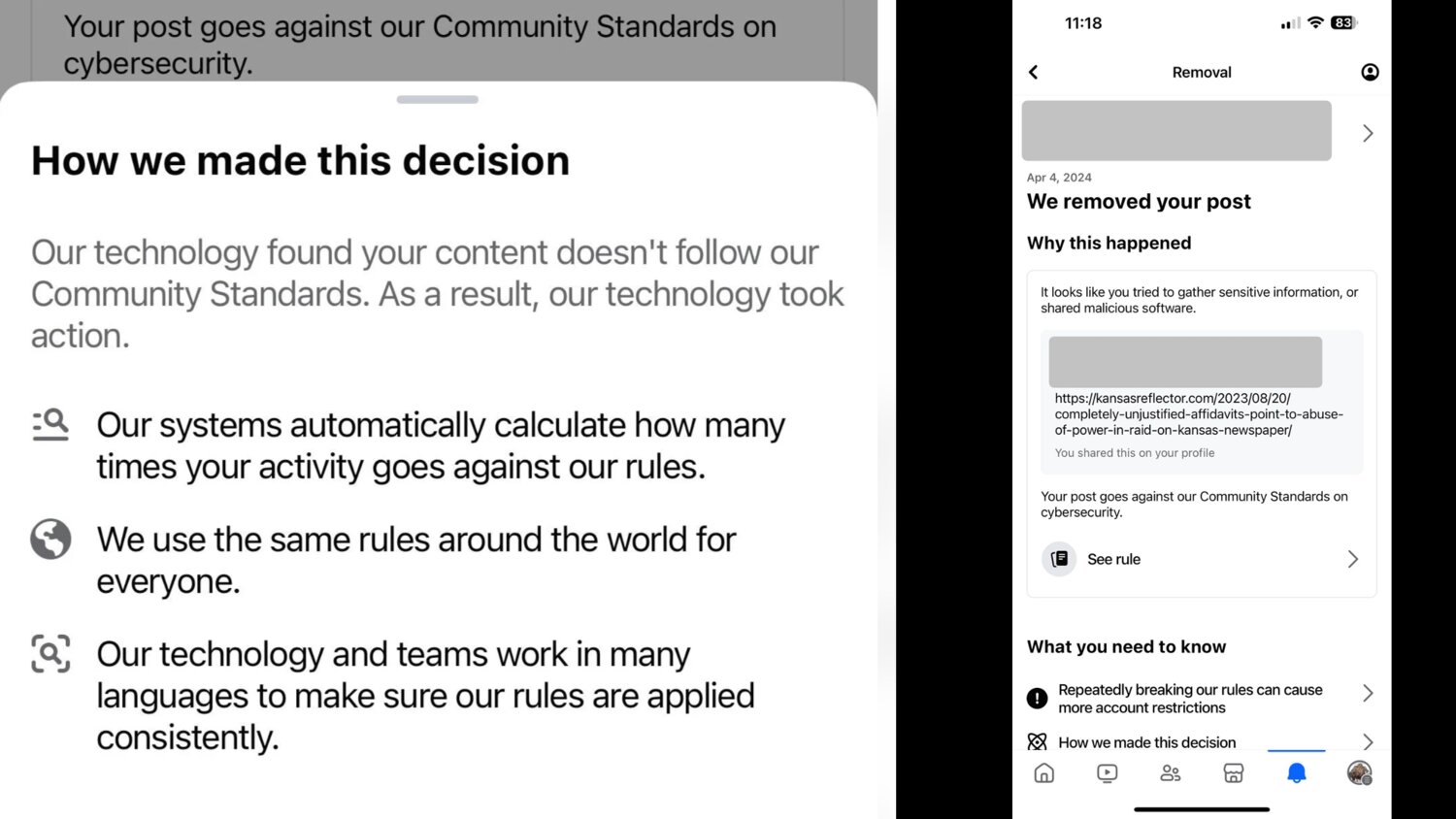In a dramatic turn of events, the Kansas Reflector, a news affiliate of the non-profit States Newsroom, found itself at the center of a contentious battle with Facebook. Sherman Smith, the editor-in-chief of the Kansas Reflector, revealed the unfolding saga during an exclusive interview with Mike Blinder, publisher of E&P Magazine.
It all began when Facebook rejected an editorial entitled "When Facebook Fails, Local Media Matters Even More For Our Planet's Future," authored by Dave Kendall and published on the Kansas Reflector's website. The piece highlighted Facebook's rejection of Kendall's documentary on climate change as too divisive, emphasizing the importance of local media in disseminating crucial information.
Shortly after attempting to share the editorial on Facebook, the Kansas Reflector faced a shocking development. Facebook not only rejected the post but also removed all past posts linking to the Reflector's website. The platform unjustly labeled the Kansas Reflector a cybersecurity threat and contacted every individual who had interacted with the Kansas Reflector's page over the past four years, sending notifications branding the site as "questionable." This arbitrary action by Facebook sparked widespread confusion and concern among followers, highlighting the platform's unchecked power and the potential threat it poses to press freedom.
 Copy of messaging sent by Facebook to those who've posted to the Reflector's page over the past 4-years.
Copy of messaging sent by Facebook to those who've posted to the Reflector's page over the past 4-years.
Smith recounted a conversation with Facebook spokesperson Andy Stone, who acknowledged the platform's error in blocking the Kansas Reflector's posts. However, Stone's apology, delivered via Twitter instead of Facebook's own channel, raised eyebrows and underscored the lack of direct communication from the social media giant. Smith pressed Stone for further clarification on Facebook's actions and the potential implications for media outlets. Stone's response left Smith with lingering concerns about Facebook's accountability and transparency — especially regarding its content moderation policies and the impact on journalistic integrity. The exchange highlighted the need for greater scrutiny of Facebook's role in shaping public discourse and its responsibility to uphold press freedom.
Smith emphasized to Stone the far-reaching impact of Facebook's actions, reminding him that individuals who had interacted with the Kansas Reflector's page were told that Facebook deems their site questionable. Smith highlighted the detrimental effect this had on the publication's reputation and audience trust. Despite raising these concerns, Stone expressed his inability to rectify the situation beyond his initial apology on X, leaving Smith and the Kansas Reflector team frustrated with the lack of concrete action or recourse. This exchange underscored the broader implications of Facebook's content moderation decisions and the challenges media organizations face in navigating such platforms while maintaining journalistic integrity.
As the situation continues to unfold, Smith and the Kansas Reflector team remain steadfast in their commitment to keeping the public informed and holding Facebook accountable. They stress the importance of transparency and urge Facebook to provide a credible explanation for its actions. The Kansas Reflector's battle with Facebook not only underscores the challenges facing media organizations in the digital age but also serves as a beacon of resilience, reminding us of the ongoing struggle to preserve press freedom and protect the public's right to access information.
Comments
No comments on this item Please log in to comment by clicking here